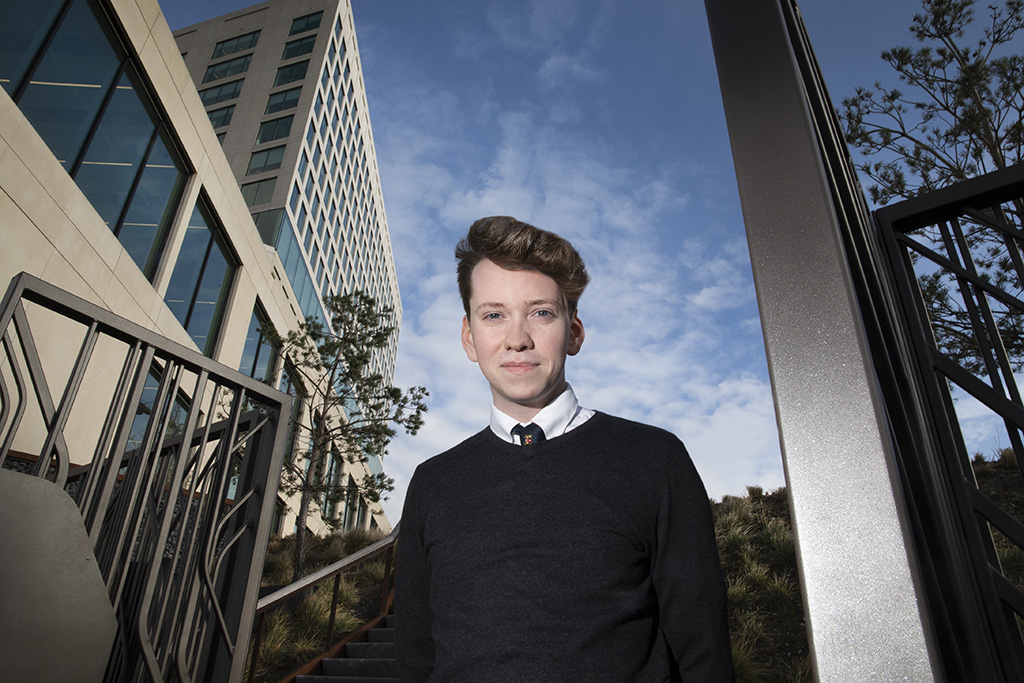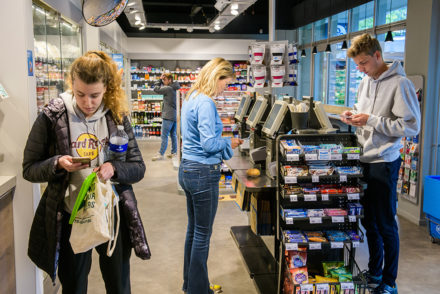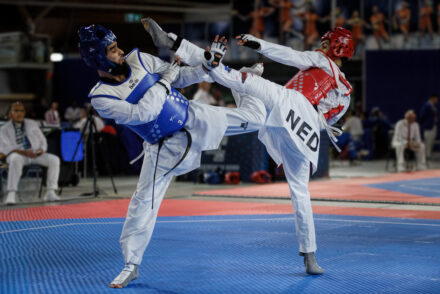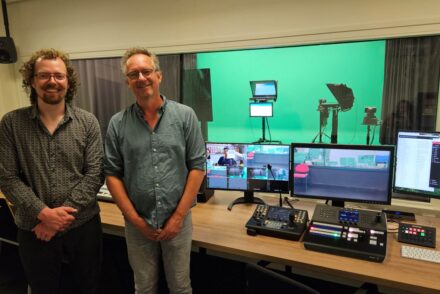Oscar (21): ‘The sidewalk slab that has been misplaced may be less interesting, but no less relevant’
The municipal elections are approaching. Because many young people are also competing for a seat on the City Council, we would like to introduce four young candidates to you. Today it is Oscar van Raak’s (21) turn, Bachelor’s student of Law at Tilburg University. In this election he is in tenth place on the SP list in Breda.

It was at the time of the 2017 House of Representatives elections that Oscar got his ‘political awakening’. He saw how his neighborhood was declining, how wealth inequality was increasing, and how the political left was just about to die. In response, he decided to join the SP (Socialist Party) in order to provide the neoliberal forces with some counterweight. The choice has since brought him several positions within the party, including tenth place on Breda’s current list of candidates.
Hi Oscar, why do you want to enter the Breda City Council?
“In Breda, there is a huge dichotomy: on the one hand, we have beautiful, wealthy neighborhoods like the Ginneken and the Ruitersbosch, and on the other hand, we have neighborhoods like Haagse Beemden and Hoge Vucht, which are neglected by the Municipality. The city government makes too many distinctions in its policies. As a result, the quality of life in disadvantaged neighborhoods has deteriorated considerably.
“Another problem is the gentrification of the city. Districts with social housing are transformed into trendy neighborhoods with the result that old residents can no longer afford it and have to move out. This is a delusion; the problem is not solved in this way, but rather shifted.
“These worrisome developments combined are causing a decline in government trust. I want to try to restore that trust by increasing the role of local government. Instead of easing social plans they should be strengthened. This is necessary for the city.”
A recent study (Dutch only) from research firm Overheid in Nederland found that barely seven percent of the approximately 8,500 council members are under the age of 30. That is remarkably low. Why are young people important in local politics?
“Many students and young people often only think about the future or big issues. Municipal politics is about the small story, about what is closer to us. Young people are generally less attracted to that. Whereas I think: the sidewalk slab that has been misplaced may be less interesting, but no less relevant.
“What also does not help is that many young people do not know what the City Council does exactly. This is because the boundary between the City Council and national politics is unclear. The dividing line is not clearly defined. As a result, it is difficult to realize what the City Council is about.
“The danger is that we as young people think that it will be taken care of, but then, of course, it goes wrong. In fact, quite a lot is decided for young people in the City Council. Whether the university will expand, how many student rooms are available and whether our Dutch cities will soon be under water.
“However, the majority of council members are not of our age. Although I want to believe that their empathy is so great that they can fully empathize with our problems, I think this is only possible to a limited extent. Moreover, it is sometimes embarrassing to see how little is talked to youth at the municipal level. That’s why they need to get into politics themselves.
“The SP and some other left-wing parties have an image of being old men’s clubs for hobbyists. Nothing of the kind is true here. The reason other parties have more young people is that success breeds success. A party that does well automatically attracts more young people. Still, young people have enough room to present themselves with us. In terms of image, we may be old, but in terms of people we are extremely young.”
What themes are particularly close to your heart?
“Fewer and fewer Dutch people have access to the law as the level of legal protection has deteriorated in recent years. The number of social lawyers is at an all-time low, and legal desks have been removed and halved. Because getting your justice has become too expensive, people don’t try at all anymore. In addition, a very large percentage of administrative cases are against the government. The latter has endless financial resources to use against citizens. This does not benefit trust in the government.
“To raise this level of legal protection, we want a so-called ‘house of law’ in every neighborhood or community. In such a house, people can get free legal assistance. This should ensure that the conclusion of law becomes accessible to every citizen, without them having to worry about the cost of it. In this way, they can do something about their own empowerment.”
How do you combine politics with your studies?
“I spend about four out of seven days a week on politics. This includes my work as a political assistant to the President of the Council of Europe, which means I have to go to Strasbourg regularly. But, in fact, because education has been largely online since the pandemic—and seems to be staying that way—I can combine it all quite well.”
What personal challenges do you see ahead of you?
“What I get a lot of pleasure from is making compromises with people who think completely differently from me. This is very common in Breda with the current political relations. It is sometimes difficult to have those kinds of people opposite you because they have a dodgy or nonchalant attitude towards themes that are very important to me. But it’s the game of reaching a compromise with them that I find one of the most enjoyable things to do.”
Translated by Language Center, Riet Bettonviel






